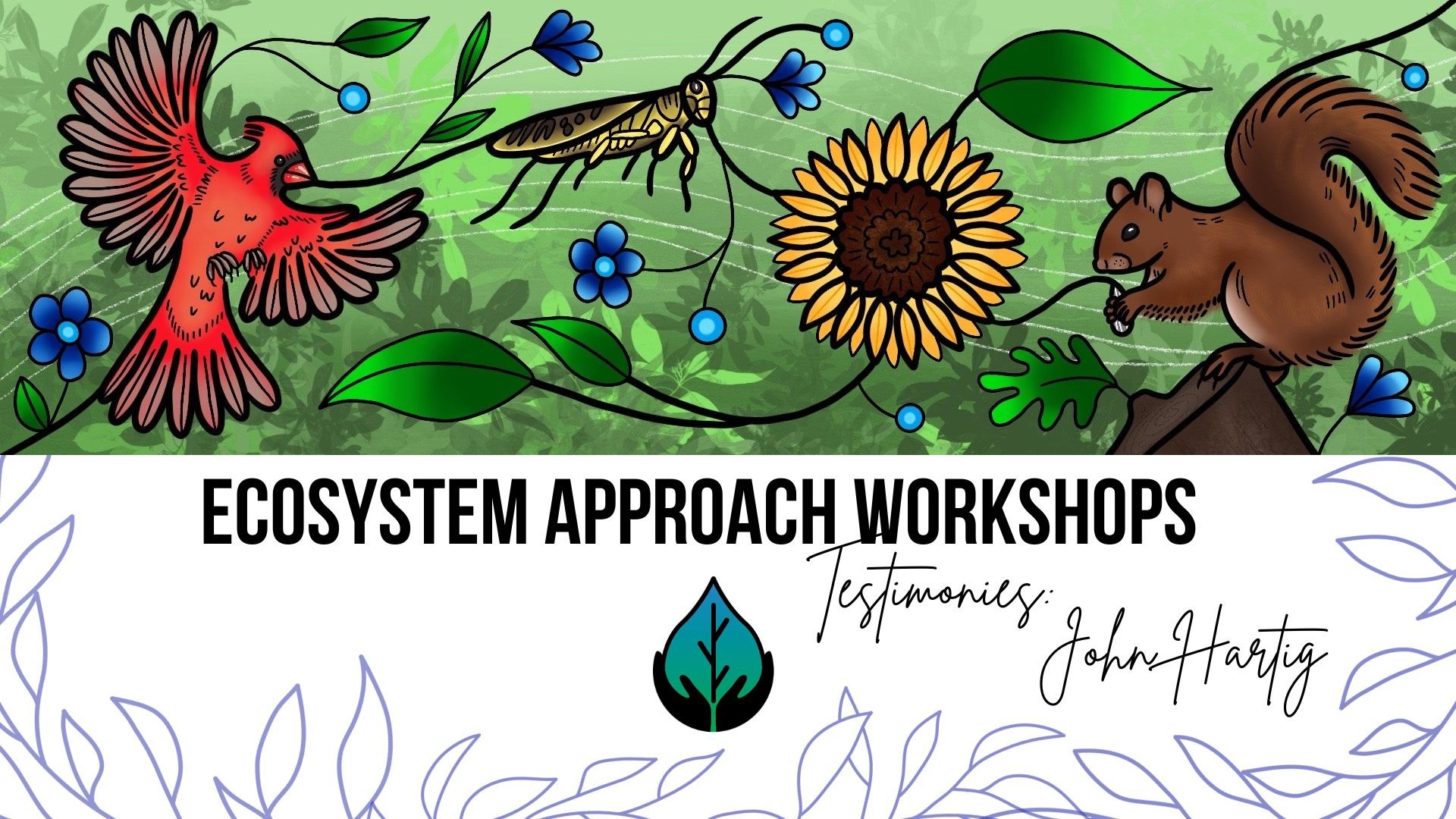Ecosystem Approach Testimonies: John Hartig
For the past two years, HHL has advanced work on the Ecosystem Approach Project (ECAP) with an invaluable partner, renowned conservationist and researcher Dr John Hartig. John has a long history of work in research, management and advocacy for the application of the ecosystem approach for the restoration of the Great Lakes ecosystems spanning more than 35 years. His work includes 8 published books and 140 authored and co-authored publications, focusing on the implementation of ecosystem approaches through Remedial Action Plans across the Great Lakes (Alsip et al., 2021). Moreover, he’s a dedicated community organizer and author of a blog with Great Lakes Now and has championed restoration of critical habitats along the Detroit River.
As a champion of the Ecosystem Approach, an analogy that resonates deeply with John is the differentiation between the environment and an ecosystem to a house and a home. A house, like the environment, is a concept often detached from human feelings. In this video John describes that people often see it from the outside, we are not part of it and its protection does not directly concern us. A home on the other hand, like an ecosystem, is something we feel a part of. We think about it even when we are not there, and its protection is our innate responsibility.
The sense of us humans belonging to the ecosystem rather than observing it from the outside brings along a heightened sense of care and responsibility – is among the core differences between an Ecosystem Approach and other approaches to environmental management.
In line with that sense of care and belonging, John has devoted his career to restoring and protecting the Detroit River as a good steward of the land. Evidently, his hard work has paid off. During the past decades he has witnessed heavily polluted urban and peri-urban wetlands transform into flourishing ecosystems. With a gaze at the achievements of rehabilitation efforts and the persistent application of the Ecosystem Approach in the Great Lakes, it’s clear he is committed and passionate.
Listen to him speak below, where he will carry you away with his optimism and confidence for the future of the Great Lakes ecosystems.
With John’s leadership, ECAP has organized a hybrid Ecosystem Approach International Conference (link) where a diversity of approaches within the Great Lakes Areas of Concern, and beyond were discussed. Specialists, scientists, experienced practitioners, students and early career professionals were brought together to share perspectives, teachings, recommendations and visions around the practice of the ecosystem approach. Topics of discussion ranged from the history and status of the EA to a future where ecosystem approach’s impact is maximized. The outputs that were produced from the conference were a set of recommendations and seven manuscripts. The past year, we entered the second phase of the ECAP. During that phase, we have been taking the recommendations from the conference “on the road”, organizing 15 workshops (link) with versatile user groups and stakeholders across the Great Lakes. With facilitated discussions and a feedback survey (open to everyone here [link]), we’ve been “re-energizing the Ecosystem Approach in the 21st century” across the Great Lakes and beyond. The conference’s recommendations, as well as the feedback that will be gathered via the survey and the workshops, will be summarized and the results will be synthesized into a report which will be submitted to and inform policy makers in Canada (Environment and Climate Change Canada, Great Lakes National Programs Office).
We at HHL are grateful to have collaborated with a Great Lakes leader through this project, connecting ways of knowing and doing with different stewards and communities of practice. Most importantly, this collaboration has brought our work to the science-management and decision-making interface and we are grateful to our funders Erb Family Foundation and Environment and Climate Change Canada for supporting our engagement and research into the successful qualities of the ecosystem approach implementation.
Tell us what YOU think about the Ecosystem Approach here:
Follow us on social media for more information and news or follow #EcosystemApproach.
Resources:
John H. Hartig and R. Vallentyne (1989): Use of an ecosystem approach to restore degraded areas of the Great Lakes. AMBIO A Journal of the Human Environment. Vol.18, No. 8
Alsip, P.J.; Hartig, J.H.; Krantzberg, G.; Williams, K.C.; Wondolleck, J. (2021): Evolving Institutional Arrangements for Use of an Ecosystem Approach in Restoring Great Lakes Areas of Concern. Sustainability, 13, 1532. https://doi.org/10.3390/su13031532

